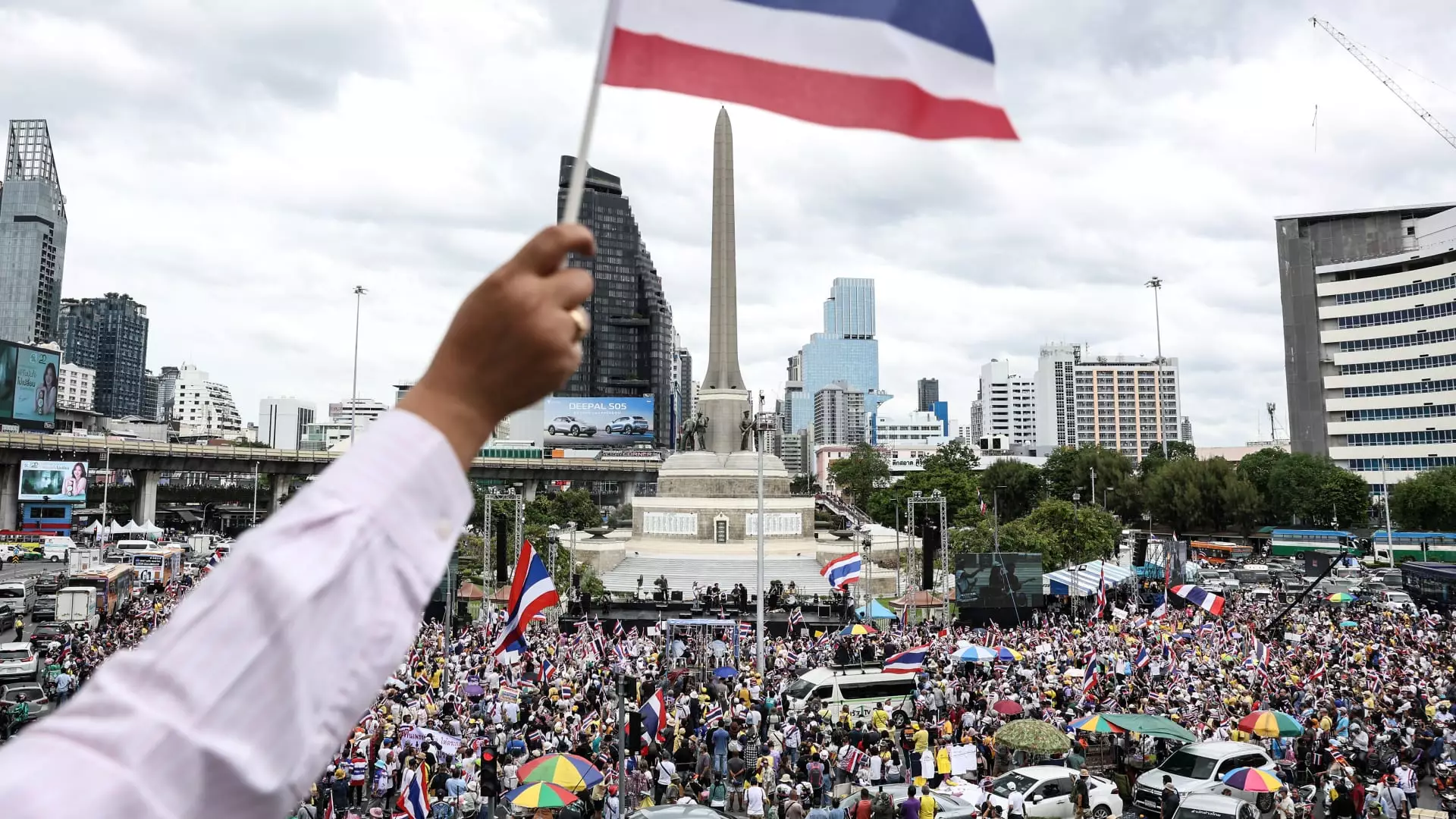Thailand’s political landscape is once again on edge with the recent surge of nationalist protests targeting Prime Minister Paetongtarn Shinawatra. The demonstration at Victory Monument, emblematic of military valor and national pride, is more than just an expression of dissatisfaction—it signals a dangerous escalation in political tensions. The protestors, coalescing under the United Force of the Land, evoke a troubling pattern in Thai politics where grassroots unrest evolves into systemic destabilization. This isn’t mere public dissent; it’s a coordinated pressure tactic that has historically paved the way for judicial crackdowns and even military coups.
The protestors’ demands for Paetongtarn’s resignation echo the grievances that toppled previous Shinawatra-backed administrations. Yet, beneath these familiar complaints lies a deeper narrative: the persistent struggle between Thailand’s elected authorities and entrenched power structures, particularly the military and conservative elites. This enduring tug-of-war threatens to subvert the democratic process, undermining not only governance but also the country’s socio-economic recovery.
Fragile Governance Under Siege
Paetongtarn’s government entered office with high hopes but now faces a precarious reality. The coalition’s recent fragmentation following the Bhumjaithai Party’s departure strips away a crucial layer of support, reflecting underlying fractures that could precipitate a no-confidence vote. The timing—amid economic struggles and regional diplomatic strain—cannot be worse. The government’s efforts to stabilize an ailing economy are compromised by political infighting and escalating nationalist fervor.
The leaked phone conversation with Cambodia’s former premier Hun Sen has become a critical flashpoint, revealing the fragility of Thailand’s sovereignty discourse. Paetongtarn’s attempt to de-escalate tension with Hun Sen was perceived domestically as a betrayal, especially due to the criticism of a Thai army commander—an act crossing an invisible boundary in a military-dominated political culture. Her subsequent apology underscores a governing dilemma: balancing diplomacy without alienating powerful domestic actors. This incident exemplifies how external diplomacy becomes entangled with internal political survival, exacerbating instability.
Judicial Overreach and Political Weaponization
The involvement of Thailand’s Constitutional Court and anti-graft bodies in investigating Paetongtarn signals a perilous politicization of judicial institutions. Rather than serving as impartial arbiters, these bodies risk being utilized as tools to dismantle a democratically elected government. The petition by senators is more than a legal challenge—it’s an orchestrated move to undermine political opposition through institutional channels.
This maneuvering weakens democratic norms and fuels the cycle of distrust between elected leaders and entrenched power brokers. It also reflects the broader regional pattern where judiciary and anti-corruption agencies are selectively harnessed to neutralize political threats. Such practices deeply endanger Thailand’s fragile democracy, forcing leaders to navigate governance in a landscape riddled with perilous power plays.
External Provocations Fuel Internal Crisis
The sharp, public denunciation by Hun Sen against Paetongtarn and her family adds an unprecedented international dimension to Thailand’s internal strife. His outspoken call for regime change not only exacerbates bilateral tensions but also emboldens nationalist factions within Thailand. Rather than defusing the border dispute through quiet diplomacy, this provocation inflames nationalist narratives, which militantly challenge the government’s legitimacy.
Thailand’s foreign ministry, emphasizing diplomacy, finds itself caught between maintaining sovereign dignity and managing unruly political forces that thrive on confrontation. This underscores an urgent need for leadership willing to confront nationalistic demagoguery while steering a pragmatic and peaceful foreign policy. The temptation to exploit external disputes for domestic political gain is a dangerous game that risks derailing Thailand’s democratic progress and economic revival.
—
Thailand stands at a perilous juncture: between embracing democratic resilience or succumbing to cycles of nationalist fervor, judicial manipulation, and external assault. Paetongtarn’s government embodies this struggle, negotiating a labyrinth of political hostility that threatens not just her leadership but the country’s future stability. Navigating this crisis demands courageous, centrist leadership that can reject authoritarian temptations while fostering inclusive governance and genuine sovereignty.

Leave a Reply